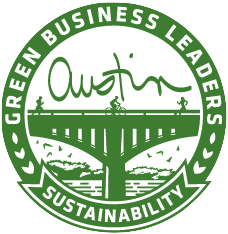EcoRise and Chicago Eco House are teaming up to educate and empower disadvantaged youth in Chicago. Quilen Blackwell, founder of Eco House, and his students had a great idea—to build a beehive for their Flower Farm—all they needed was a little outside help. Blackwell met Abby Randall, Director of Programs at EcoRise, through North American Association for Environmental Education’s (NAAEE) ee360 Community EE Fellowship program. NAAEE strives to inspire leaders to address environmental challenges and help build community resiliency, which is exactly what Randall and Blackwell had a plan to do.
Eco House’s mission is to train inner-city youth in sustainable social enterprises to alleviate poverty. “Chicago is plagued by gun violence, high poverty, and vacant lots primarily on the south and west sides of the city,” Blackwell said. “The Flower Farm is a viable solution to these problems because it converts vacant lots into off-grid flower farms that create economic and educational opportunities for at-risk youth who live in these communities.”
The Eco House model is structured as an afterschool social enterprise program where E-STEM (Environmental Science, Technology, Engineering, and Math) project-based education is infused into an income generating business model. This helps to make learning E-STEM “real” for students as they connect environmental stewardship to economic gain and community impact.

Eco House students wanted a beehive to help the Flower Farm thrive and to produce honey. As Blackwell explains, it’s a great complementary business to the Flower Farm. “Bees are a nice stacked enterprise on our farms because the bees are natural pollinators for flowers, and using the same space, we create another marketable product in raw honey that can add to our youth business’ product portfolio.”
When Blackwell and Randall met through the ee360 Fellowship, the beehive project got its wings. With Randall’s passion for igniting youth to be green leaders and Blackwell’s energy for teaching sustainable social enterprises, a business partnership was a perfect fit.
“The ee360 Fellowship program has been a major boost in helping us achieve our goals with Eco House,” Blackwell said. “Eco House is strong at our environmental social enterprise program, but we lacked a robust sustainability curriculum to undergird the program. EcoRise’s strengths complemented our program’s weaknesses.”
NAAEE granted $5,000 allowing Eco House to implement the EcoRise Business of Social Good (BSG) Curriculum. The funding also allocated $1,000 for students to apply for a grant from the EcoRise Student Innovation Fund.
Blackwell guided the students through EcoRise’s new curriculum, The Business of Social Good: Entrepreneurship in Service of People, Profit, Planet. This helped the students determine their business plan and apply for a grant from EcoRise’s Student Innovation Fund.
 The students applied for the EcoRise BSG Award themselves by completing the paperwork and filming a video describing why they wanted a beekeeping business. “Our Flower Farm has a shed and uses rainwater irrigation, so it is good for the environment,” says one student. “Our community does not have a lot of jobs. This helps create jobs for us.” From another student: “I would like to buy shoes and clothes by myself. Kids here want to do the same thing. This project is important to us.”
The students applied for the EcoRise BSG Award themselves by completing the paperwork and filming a video describing why they wanted a beekeeping business. “Our Flower Farm has a shed and uses rainwater irrigation, so it is good for the environment,” says one student. “Our community does not have a lot of jobs. This helps create jobs for us.” From another student: “I would like to buy shoes and clothes by myself. Kids here want to do the same thing. This project is important to us.”
They applied for and received $1,034.50 for the first ever EcoRise BSG Student Innovation Award this Spring. The award funds the building and upkeep of the first of many beehives on the Eco House Flower Farm.
“This is just the beginning of an exciting collaboration with Eco House and a Student Innovation Fund for BSG students nationwide,” said Abby. “We’re particularly excited that younger students are taking advantage of our social entrepreneurship curriculum as it was originally designed for high school students. We can’t wait to see the beehive business in action!”
 While Blackwell is expecting a steep learning curve with the beehive this year, he estimates they will generate about twenty pounds of raw honey and $300 to $400 this year in revenue.
While Blackwell is expecting a steep learning curve with the beehive this year, he estimates they will generate about twenty pounds of raw honey and $300 to $400 this year in revenue.
Long term he expects to add about ten hives on the Flower Farm. As they continue to learn, and their management practices improve, Blackwell hopes to collect about 60 to 100 pounds of honey per hive per year, or $20,000 a season in raw honey sales.
“This would provide youth summer jobs in our communities and prove that beekeeping, as well as flower farming, are viable economic alternatives to drugs and gangs,” said Blackwell. “So, we expect that it would inspire many youths to join our ranks and we would be able to expand our Eco House model to other schools on the south and west sides of Chicago.”
We are so excited to see what these students will accomplish as their business ideas come to life! To learn more about The Business of Social Good: Entrepreneurship in Service of People, Profit, Planet, click here.





